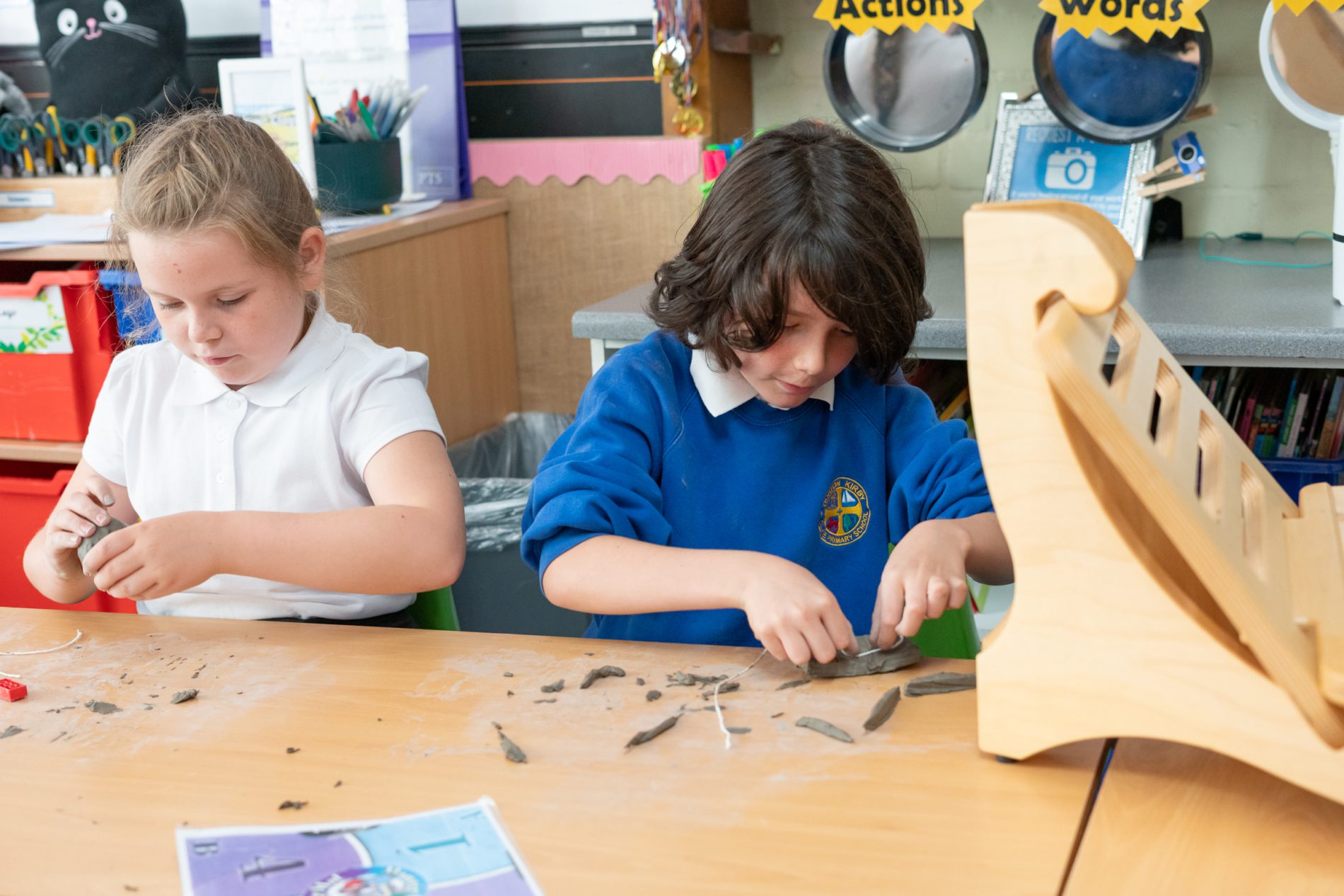Art and Design Subject Leader: Miss J Aspey
For any more information on Horton Kirby’s Art and Design Curriculum, please contact the office.
Pupils are given the opportunities to explore their ideas through creative mediums; unleashing their imagination and learning vital skills including drawing, painting and sculpting.
Intent
Horton Kirby’s Art and Design curriculum is discretely taught and aims to inspire pupils and develop their confidence to experiment and invest their own works of art. Our curriculum provides pupils every opportunity to develop their ability, nurture their talents and interests, express their ideas and thoughts about the world, as well as learning about Art and artists across cultures and through history.


Implementation
Our curriculum is designed with five strands that run throughout. These are:
- Generating ideas
- Using Sketchbooks
- Making skills, including formal elements (line, shape, tone, texture, pattern, and colour)
- Knowledge of artists
- Evaluating and analysing
Units of lessons are sequential, allowing pupils to build their skills and knowledge, applying them to a range of outcomes. The formal elements, a key part of the national curriculum, are also woven through the units of work. Key skills are revisited again and again. This allows pupils to revise and build on their previous learning. Units in each year group are organised into four core areas:
- Drawing
- Painting and mixed media
- Sculpture and 3D
- Craft and Design
Our units fully scaffold and support our pupils learning with creativity and independent outcomes, enabling pupils to make their own creative choices and decisions, so that their art outcomes are knowledge rich and unique to the pupils.
Art lessons are practical and encourage experimental and exploratory learning with pupils using their sketchbooks to document their ideas.
Impact
The expected impact of following our Art and design Curriculum will:
- Produce creative work, exploring and recording their ideas and experiences.
- Be proficient in drawing, painting, sculpture and other art, craft, and design techniques.
- Evaluate and analyse creative works using subject-specific language.
- Know about great artists and the historical and cultural development of their art.
- Meet the end of key stage expectations outlined in the national curriculum for Art and design.
After the implementation of our Art curriculum, pupils should leave primary school equipped with a range of techniques and confidence and creativity to form a strong foundation for their Art and design learning at Key Stage 3 and beyond.

Art and Design in Each Stage
Within EYFS, children will learn to sing a range of well-known nursery rhymes and songs, poems and stories with others, and – when appropriate – try to move in time with music.
Click the link below to view our EYFS long-term plan:
In KS1, pupils will be able to select the best materials and techniques to develop ideas. Pupils will be able to explore their creativity through ink, polystyrene, pencils, charcoal, clay and more. They will learn, identify and mix primary and secondary colours.
Click the link below to view our year 1 and year 2 long-term plans:
In KS2, pupils will develop techniques, materials and visual elements through experimentation to create different types of art. Pupils are encouraged to use their imagination to produce creative work.
Click the link below to view our year 3 – 4 long-term plan, and year 5 – 6 long-term plan:
Year 3 Curriculum Year Overview
Year 4 Curriculum Year Overview
Art and Design Progression
At Horton Kirby, we develop our pupil’s Art & Design understanding through essential skills; growing their depth of knowledge year on year. Through the use of ‘end of year expectations’, we are able to monitor their progress and allocate extra support and adaptations to the curriculum for pupils to maintain a strong Art & Design education.
SEND Information
Our SEND and disadvantaged pupils are given the necessary support in class to fully access the supported Art & Design curriculum. Learning is adapted where necessary to support SEND/EAL pupils to give equal opportunities for all to be confident in approaching any problems faced. Interventions, support and challenges are constantly revised and adapted to ensure all children are supported in achieving learning. The above areas are robustly and continuously monitored to ensure any gaps in learning are addressed.

